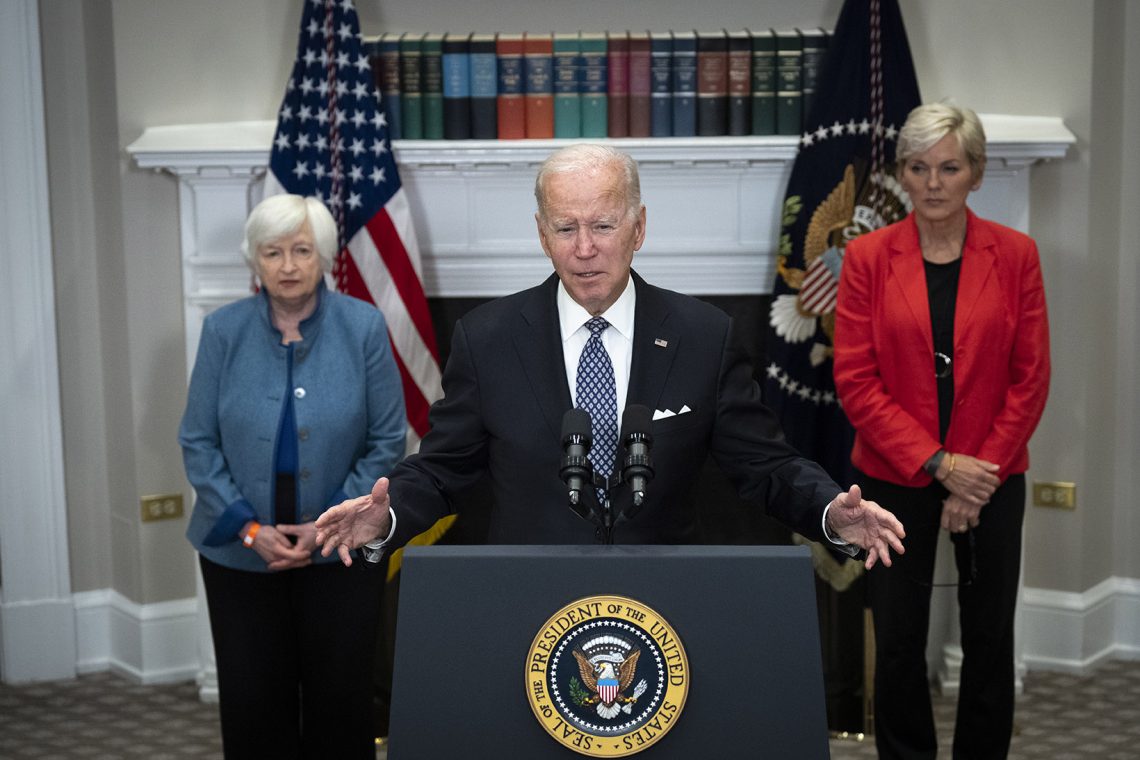Windfall-profit tax: A popular idea with bad consequences
Though some believe punishing “profiteering” with higher taxation is morally justified, for the economy, it is a dangerous folly.

In a nutshell
- Some industries are seeing unusually large profits
- These result from supply shortages caused by public policy errors
- Punitive taxes and subsidies disable the prices’ signaling function
- That ensures that economic imbalances and supply difficulties remain
Most Western economies are saddled with inflation, energy shortages and strained public finances. On top of that, recession lurks around the corner. Real wages are falling, and households’ assets are eroded. Low-income groups are being hit particularly hard. Hence, social tensions are likely to become more acute. Pressure to increase public expenditure is already mounting, and the search for new sources of tax revenue is intensifying. The United States and European Union are about to compound the problems with ill-conceived taxes on windfall profits.
The ‘sinners’
Until early 2022, the authorities focused their hunt for revenues almost exclusively on large corporations; it was presented as an effort to cut profit shifting and “unfair” tax competition. The choice of these targets was understandable: public opinion usually looks down on tax avoidance and big business. Many believe that large corporations are corrupt and twist the law-making process to their advantage. The economic jargon defines this phenomenon as “capture,” which is perceived as a threat to democracy. Moreover, many in the public have been persuaded that big business enjoys unjustified market power which is associated with exploiting workers and consumers and destroying small businesses. Capture and exploitation seem to justify retribution, and punishing taxation is considered appropriate.
Taxing large companies because of their sheer size is impractical and inefficient.
Despite repeated efforts, the tax crusade has not gone very far. On the one hand, stopping the race to the bottom requires quasi-unanimous agreement by jurisdictions across the world, which is easier said than done. On the other hand, taxing large companies because of their sheer size is impractical and inefficient. It could lead to relocation, raise disappointingly low revenues, or the additional burden would be transferred to the buyers, who would eventually pay for the very crusade they so vociferously supported.
The taxman’s new opportunity
Yet, the war in Ukraine and the (incorrect) belief that a large portion of inflation is due to that conflict have opened new lines of attack that the taxman can follow – especially on the Old Continent, where the rhetoric of inequality and exploitation has deeper roots. The basic idea goes back to the early 20th century: nobody should profit from fellow citizens’ distress when a country is at war. In today’s world, this translates into claiming that the war in Ukraine has led to price inflation. It is then unjust that some profit when inflation makes all the others worse off. The narrative then identifies selected large corporations as the cynical beneficiaries, those who take advantage of others’ misfortune.
Some industries and companies are recording unusually large profits. That fact has little or nothing to do with inflation. Inflation comes from money printing, not from international tensions. For example, the entire European energy sector has indeed posted fat profits due to energy shortages. Yet, such profits come from the trade restrictions enforced in 2022, not money printing. Similar comments apply to sectors that have been affected by the supply shortages caused by the Covid-related measures adopted by most governments in 2020 and 2021. The car, food and shipping industries are among them.
Critically important signals
Should one blame and punish companies for producing goods and services that suddenly turn out to be in short supply? As economist Armen Alchian wrote over 70 years ago, the price system is not a mechanism that operates to meet consumers’ expectations about fairness or to distribute resources in socially desirable ways. Instead, it is a system that signals scarcity. Prices – the professional economist would speak about “relative” prices – move up and down when products become relatively scarce and relatively abundant and alert buyers about what they must sacrifice to acquire something. They provide entrepreneurs and producers with valuable information about where they should direct efforts and resources.
Innovation, preferences, geopolitical shocks and policymaking ensure that prices vary daily.
Prices eventually translate into the firms’ balance sheets and generate profits and losses. These are also signals. They tell the firms’ owners that companies are well-managed, make good use of the resources available and successfully meet buyers’ needs – or that companies are inefficient, with consequences.

These days, innovation, preferences, geopolitical shocks and policymaking ensure that prices vary daily. As a result, buyers’ satisfaction, production conditions, profits and losses also change. Unsurprisingly, big shocks trigger quick and significant price changes, i.e., conspicuous and sometimes painful signals to buyers and sellers.
Not a moral issue
From a moral viewpoint, those who experience the positive consequences of price shocks are not doing anything despicable. At the same time, suffering from bad luck does not necessarily create social credit, the right to put one’s hands in the next person’s pocket, not even if they are the lucky ones. One can surely blame the haves for not helping the have-nots. Yet, disapproval and possibly contempt do not legitimize violence and punishment (heavier taxation).
Read more on corporate taxation
The roots of the global corporate tax debate
In this light, taxing windfall profits is problematic on three accounts. First, suppose one believes that solidarity toward the needy is a duty rather than a voluntary expression of generosity. In that case, taxation should leave the signaling system untouched and merely transfer tax revenues from the top income earners or wealth owners to those in need.
Second, solidarity is not a matter of justice (which involves duties) but fairness – a synonym for desirability. Taxing windfall profits or individual revenues begs the question of assessing whether, when and to what extent one’s good luck should be subject to punishment.
Big-profit-big-tax proposals are making people acquainted with the idea that the free-market system is intrinsically unfair.
Third, suppose the shareholders who benefit from luck (let alone talent, entrepreneurial insights or risk-taking) deserve punishment. In that case, it follows that those hit by bad luck should be rewarded. If so, who decides what is good and bad luck, and what originates from one’s efforts, skills, insights and willingness to take risks?
Scenarios
Double whammy
From a practical viewpoint, this line of reasoning would produce ambiguous results, to put it mildly. On the one hand, punishing the “lucky” producers would discourage them and their potential competitors from investing and expanding the supply of scarce goods. On the other hand, transferring the resources to the “unlucky” actors would ensure that resources remain in the wrong companies and that buyers keep being offered goods and services they do not want to buy. Of course, this is hardly the way to solve excess supply and excess demand situations.
Visible and invisible outcomes
Things being as they are, what can one expect in the near future and beyond? We suspect that the grand design of the advocates of big-profit-big-tax proposals consists in making people acquainted with the idea that the free-market system is intrinsically unfair: it rewards undeserving actors and punishes innocent souls. That would justify systematic intervention to tax and subsidize. However, interference would not directly affect the visible price system; the “undesirable” outcomes (profits and losses) are less visible. Never mind Professor Alchian’s views about signaling. In the final analysis, failure to allow the signaling system to work would ensure supply shortages remained.
Social engineering
That could be good news for the policymaker, though: it would provide an excuse to nationalize at least some of the “unlucky” industries and increase the presence of the state in the “lucky” ones.
To conclude, taxing large companies’ windfall profits is not going to produce significant tax revenues because the tax will be light, and the targets will be few, at least at the beginning. Instead, it will be a test to observe how public opinion reacts and possibly move forward with more ambitious social engineering projects.







